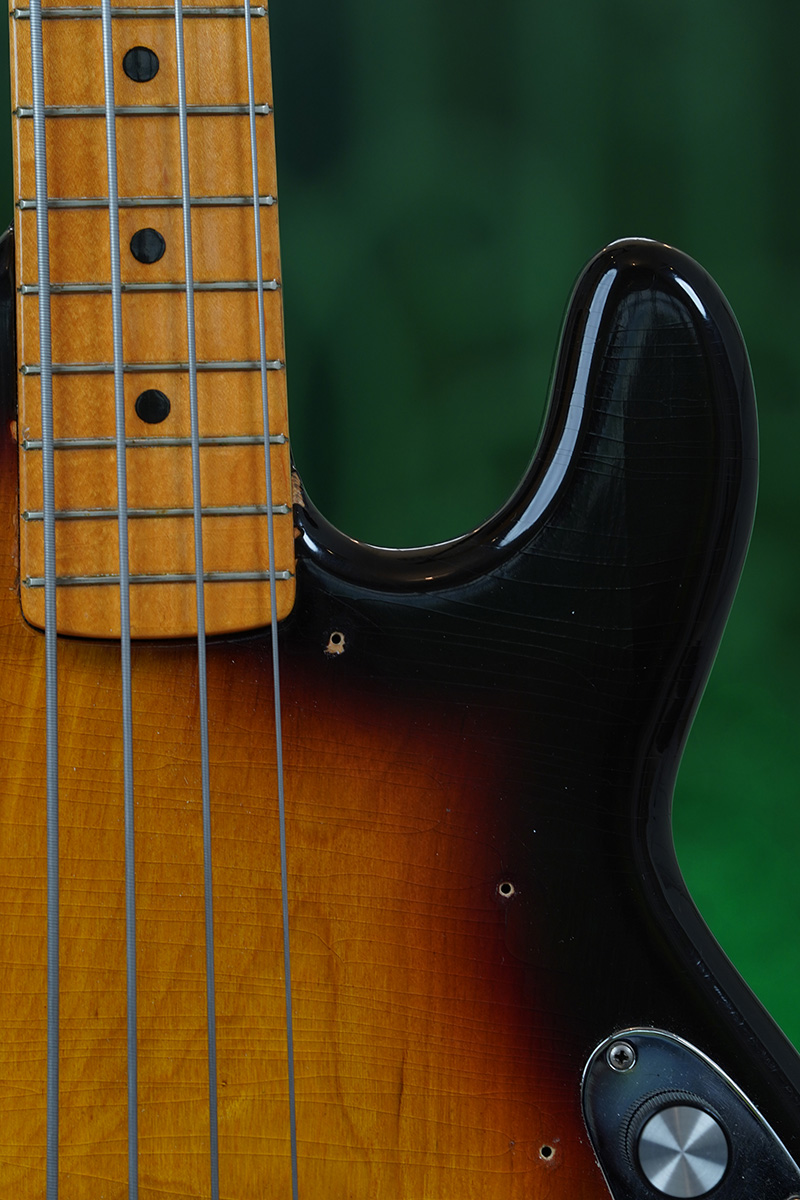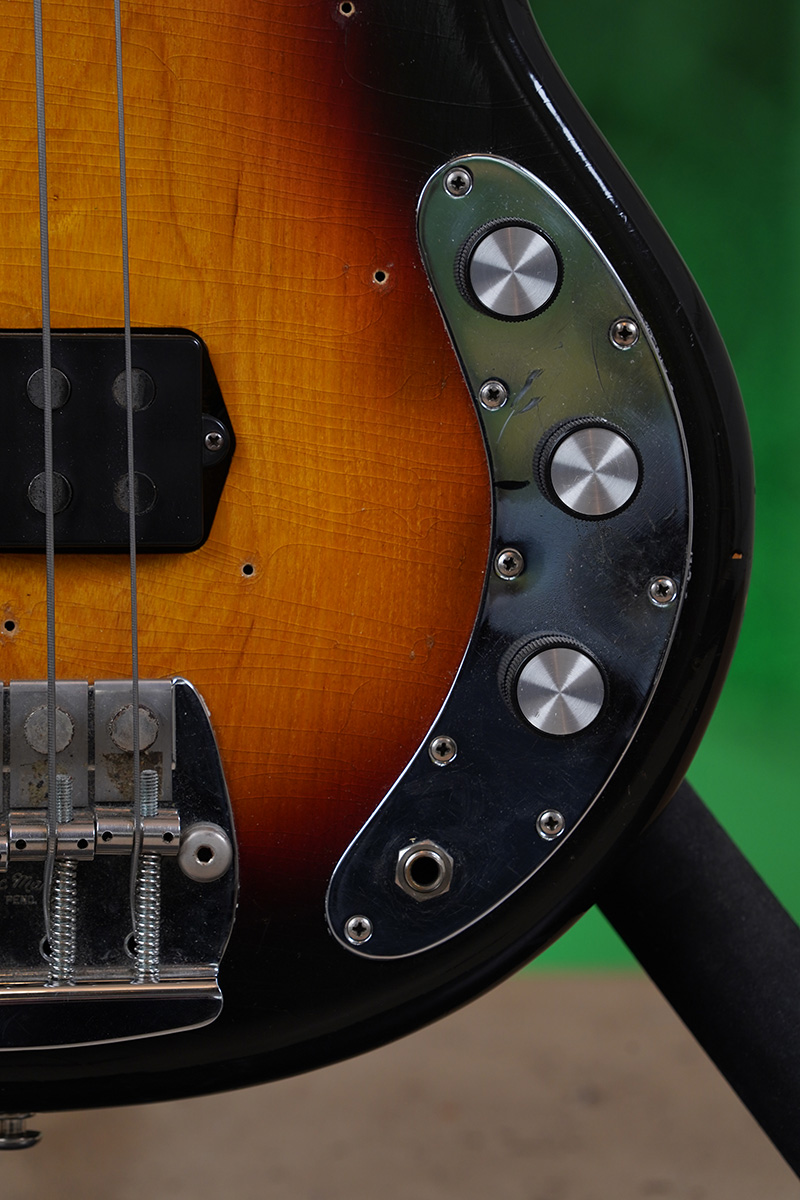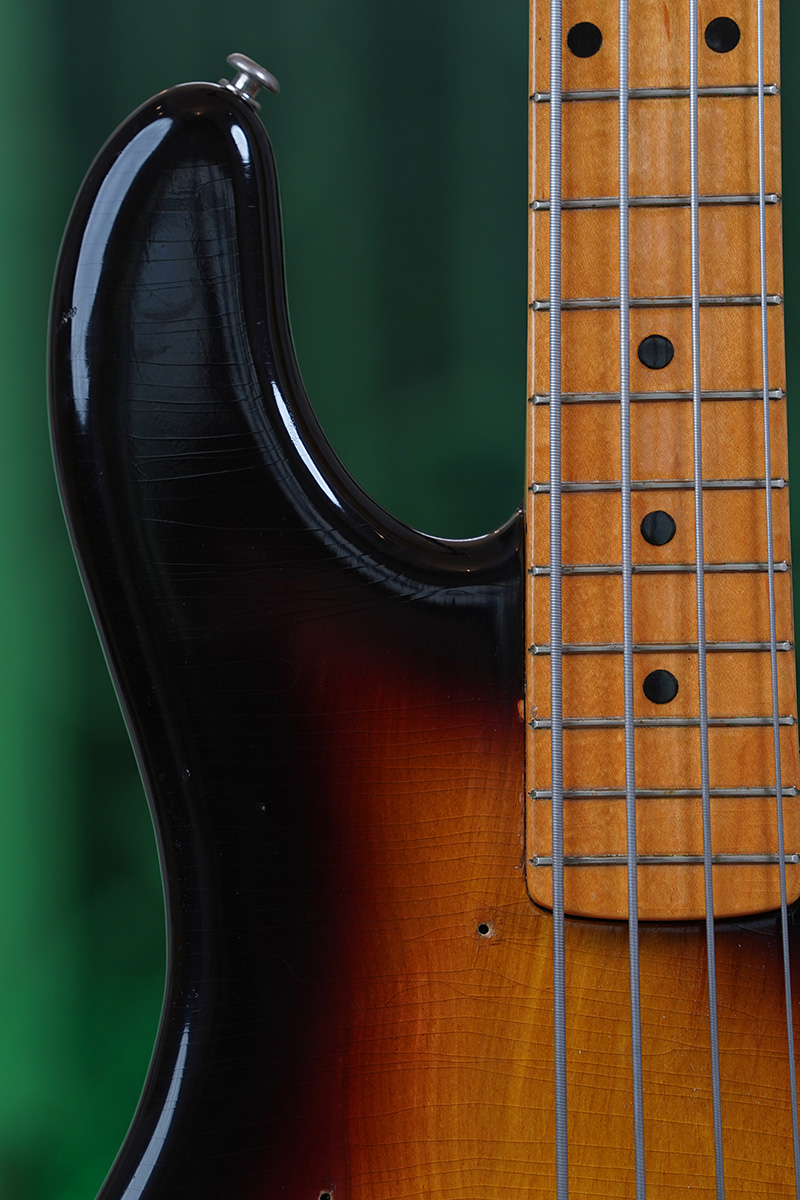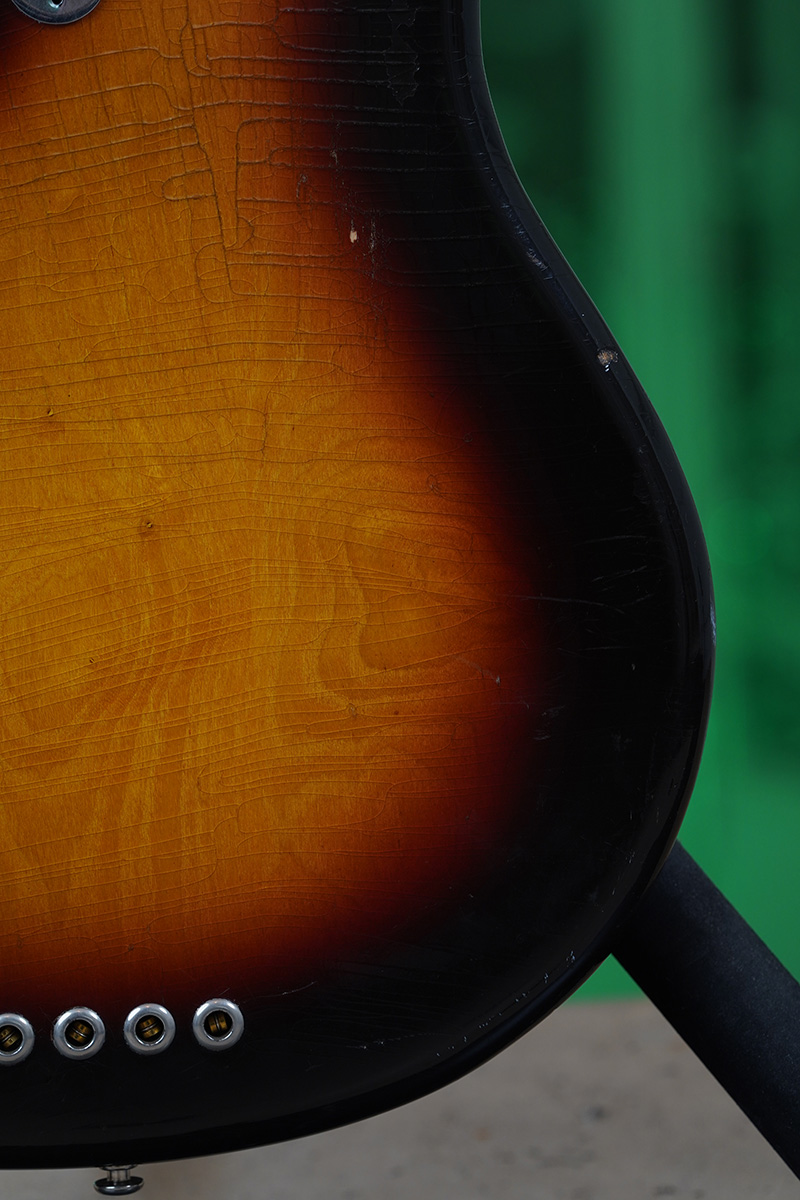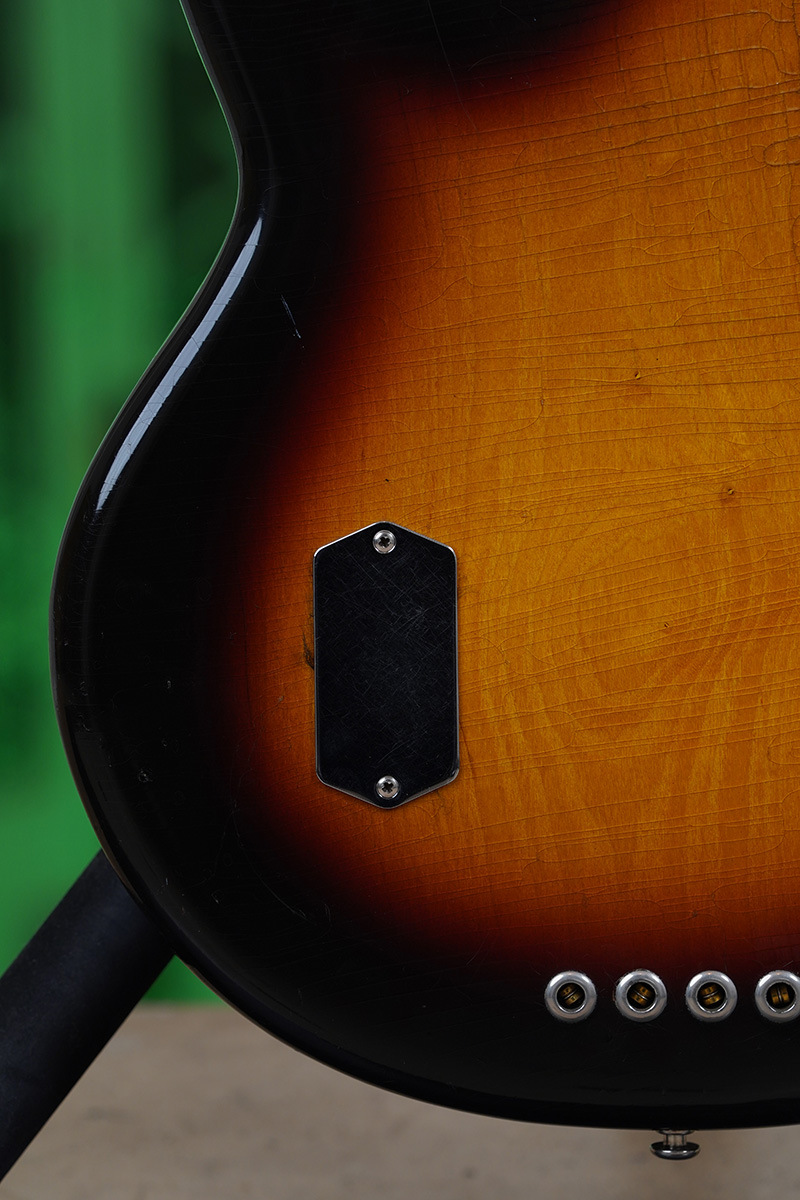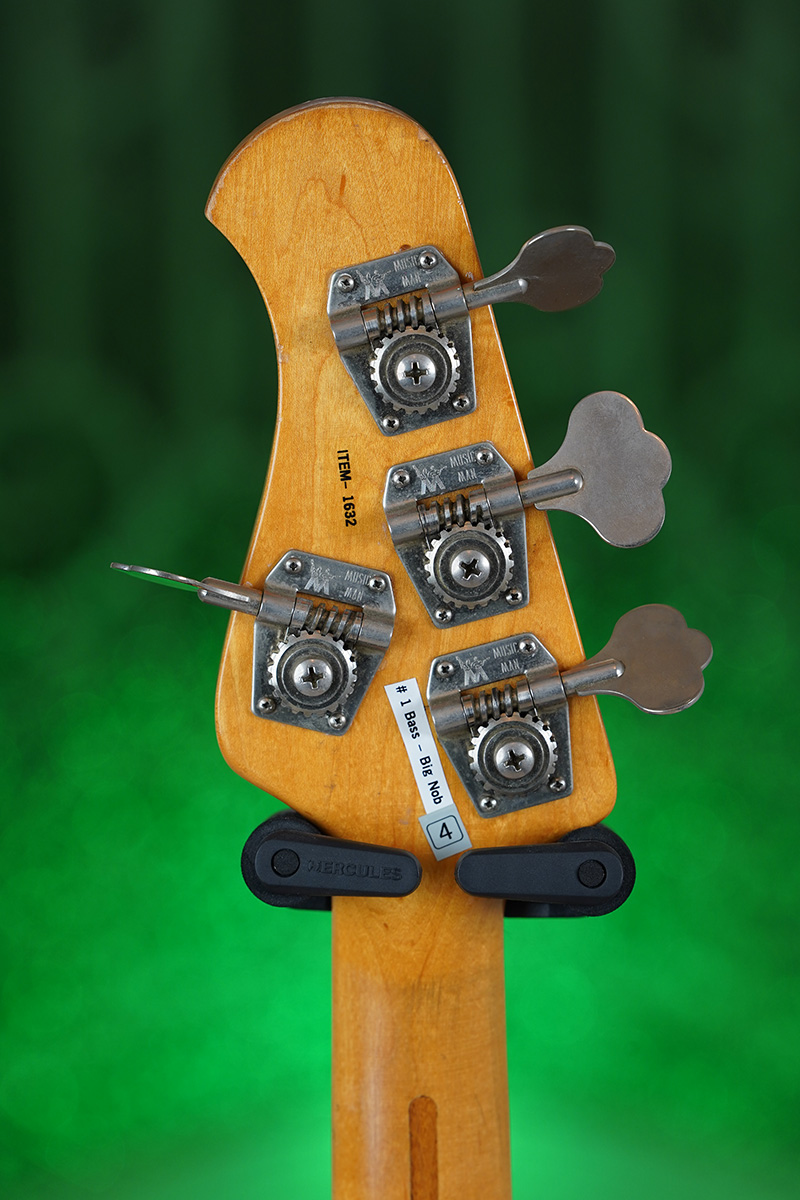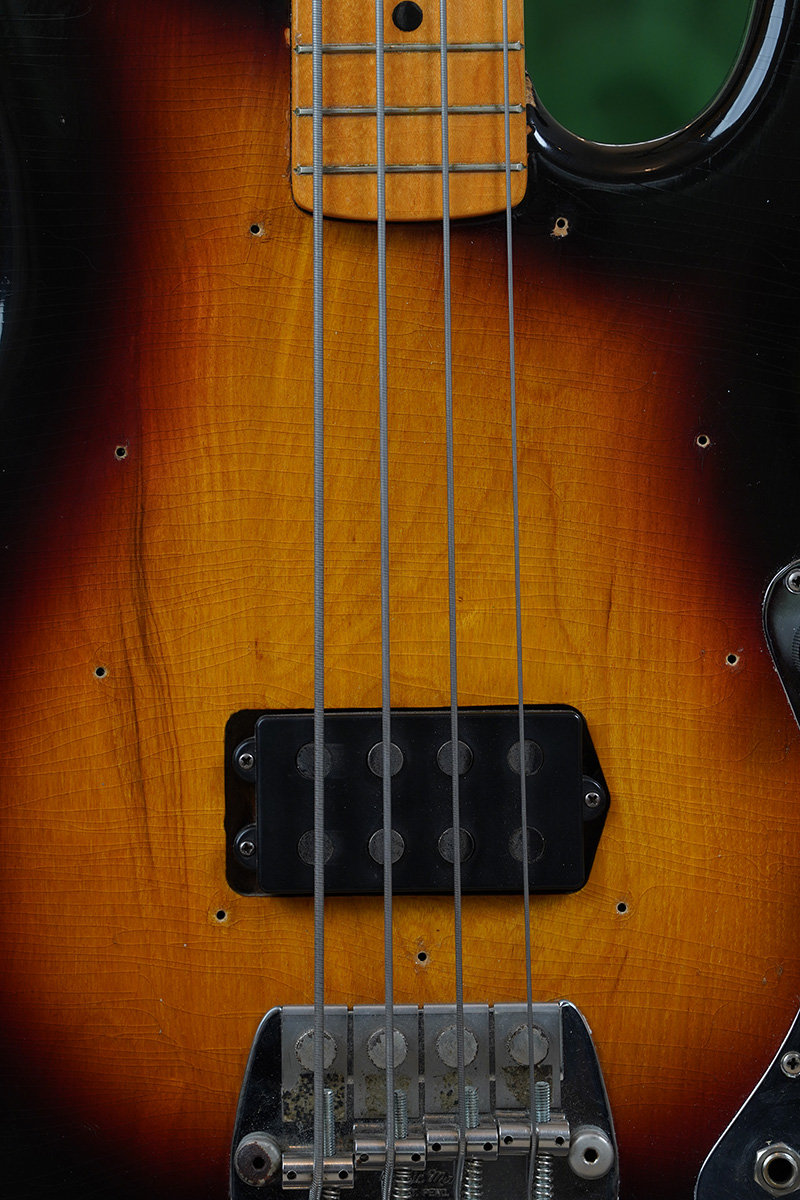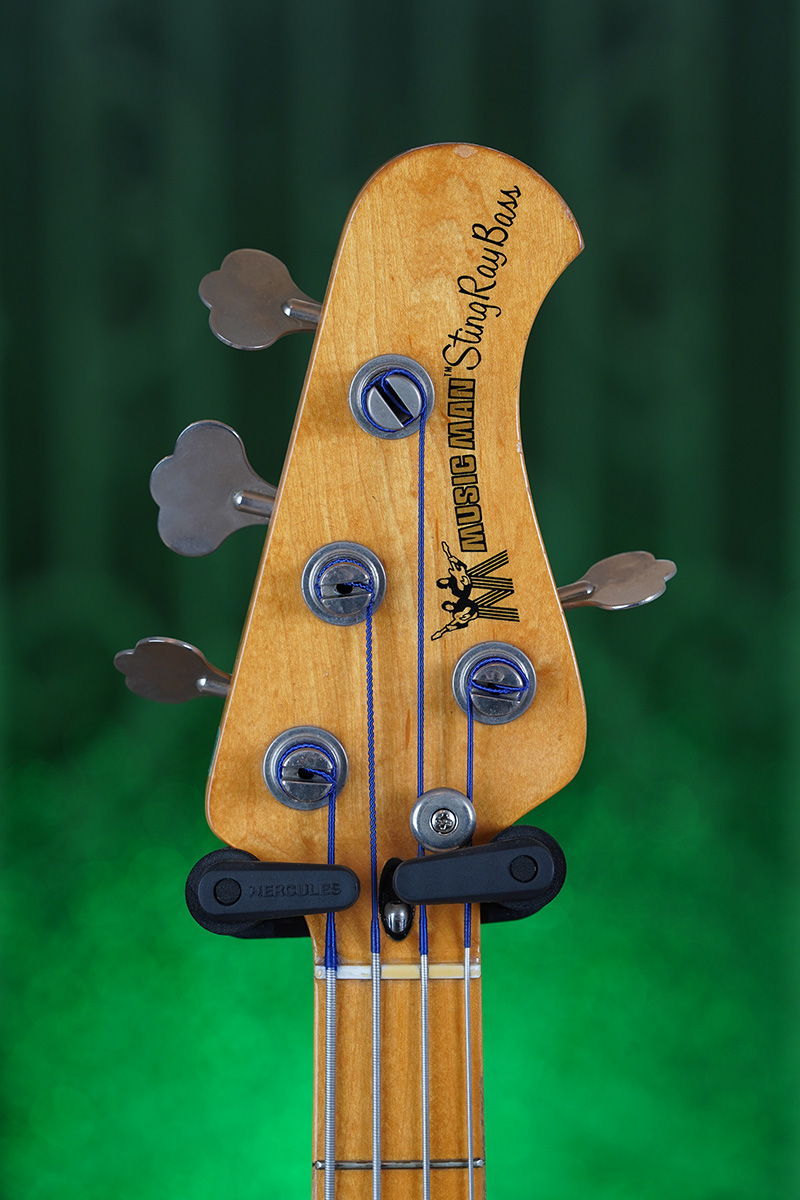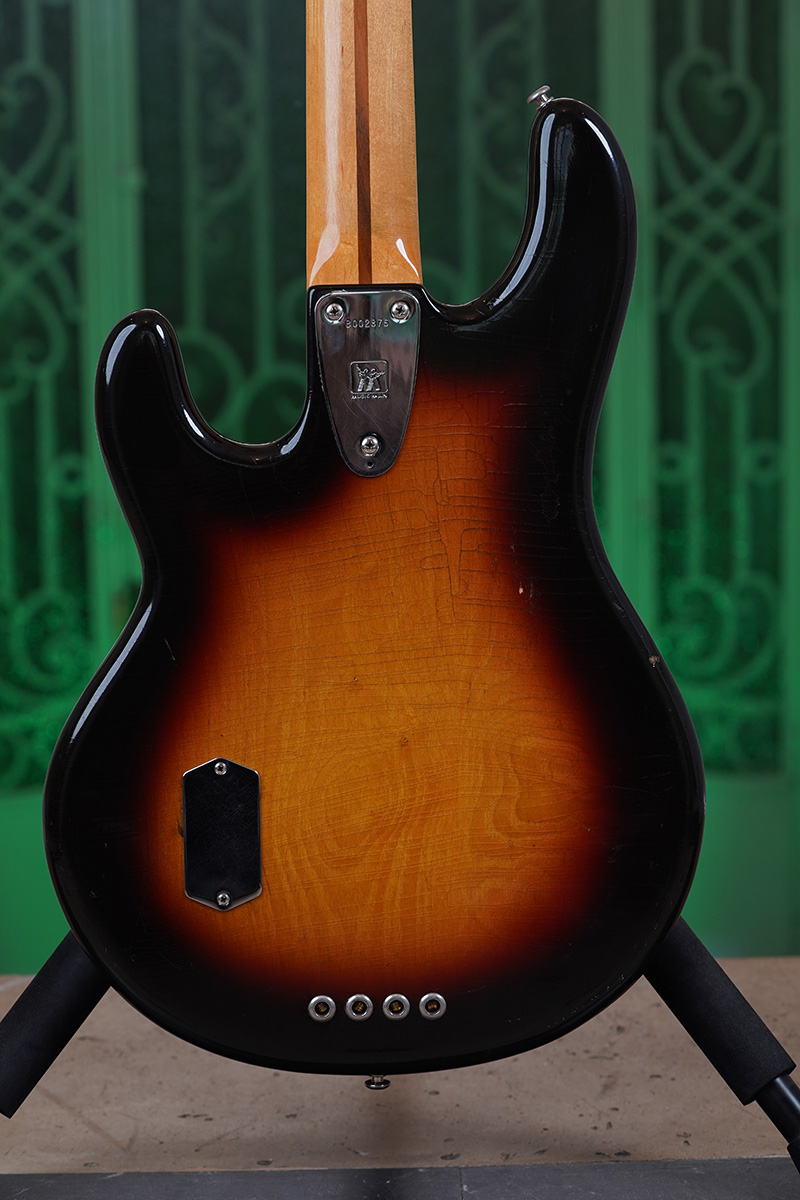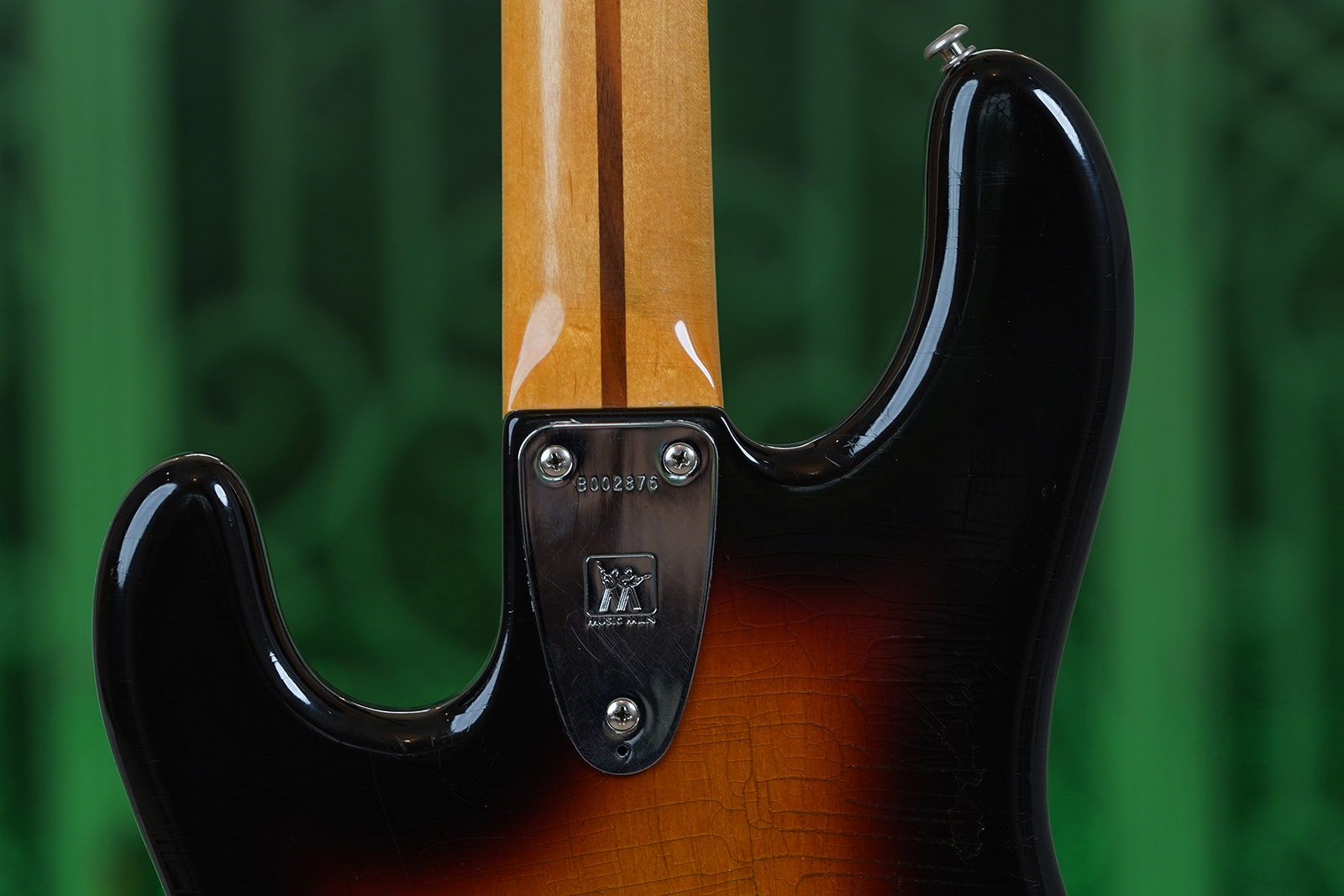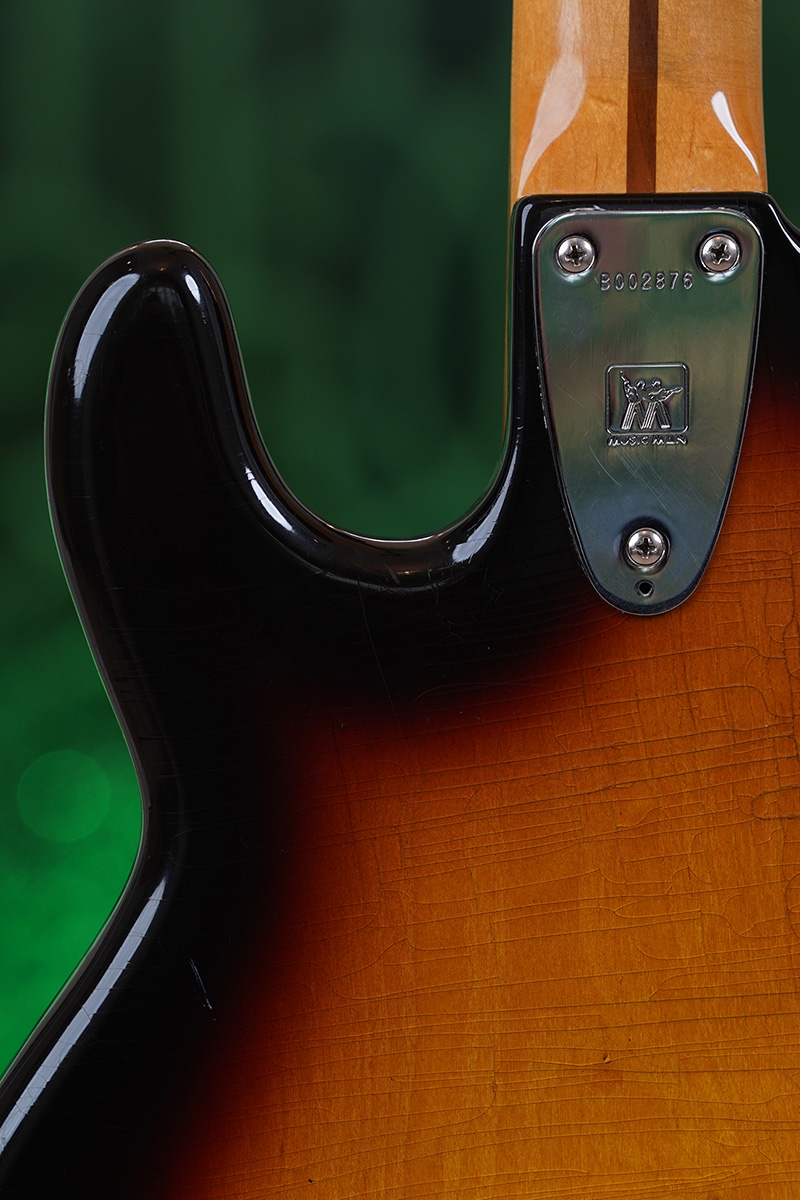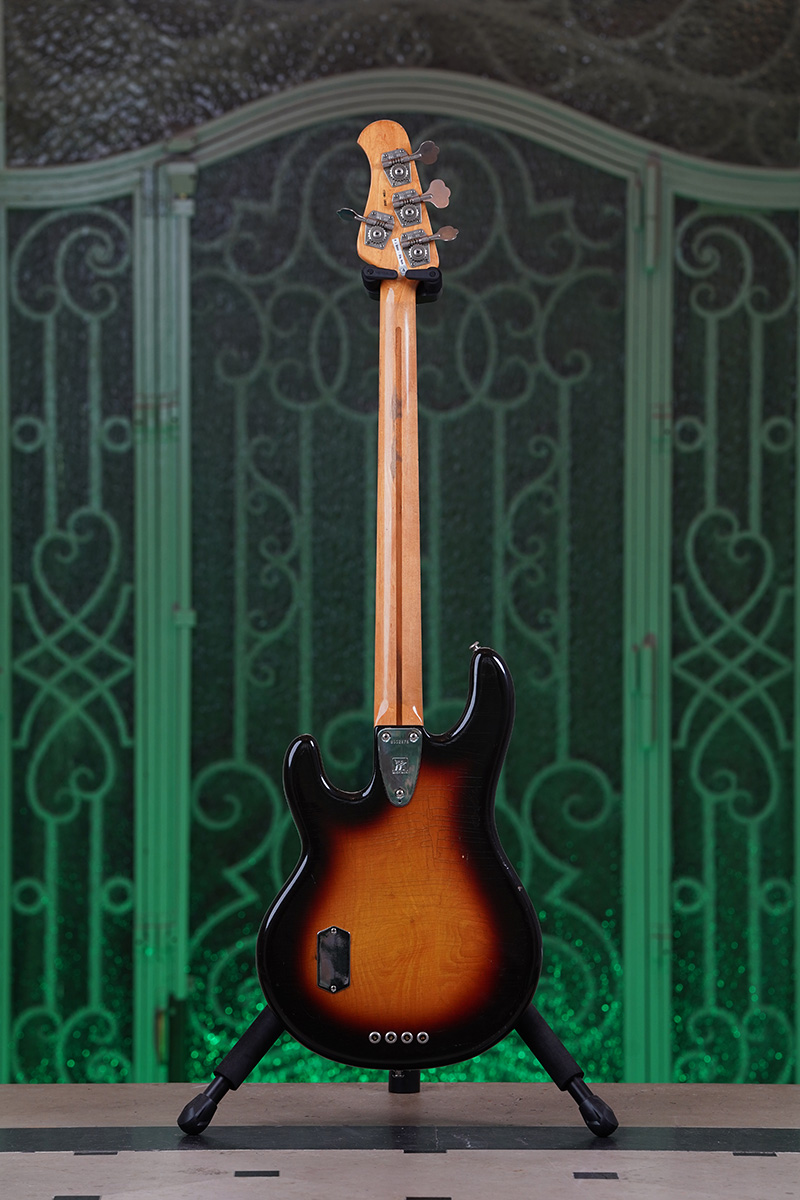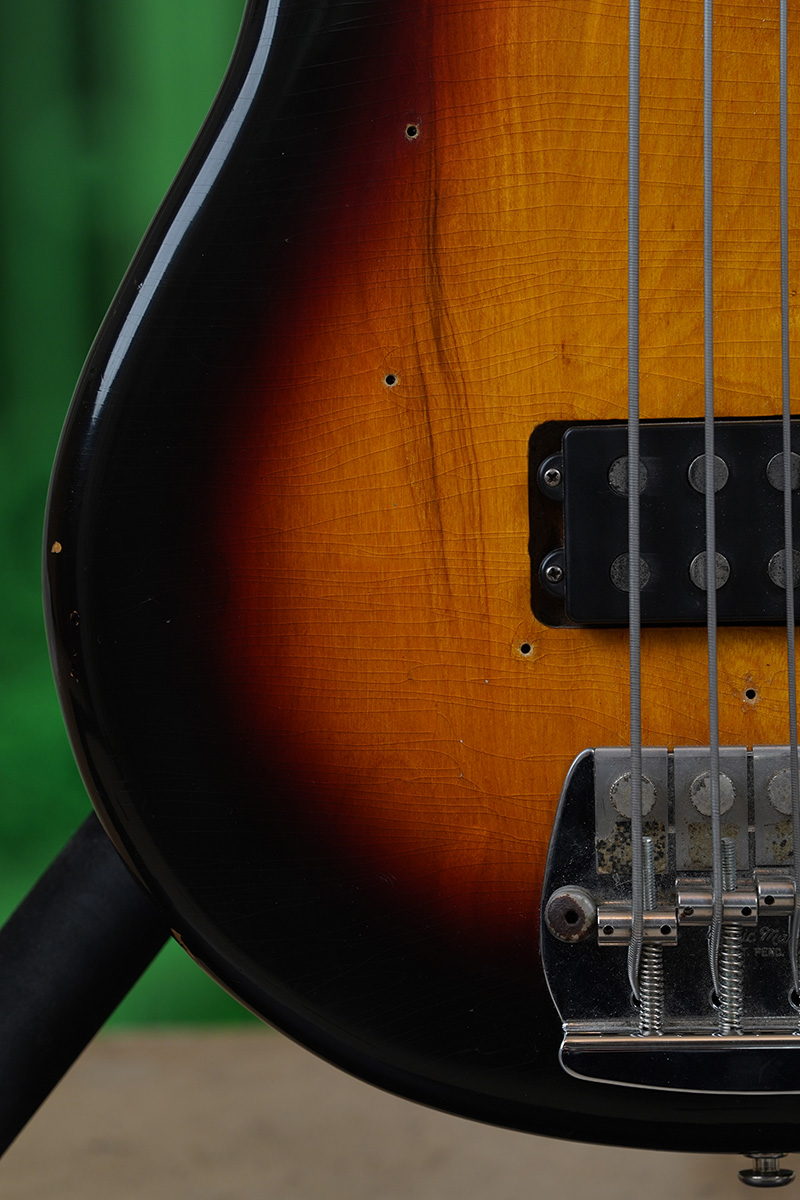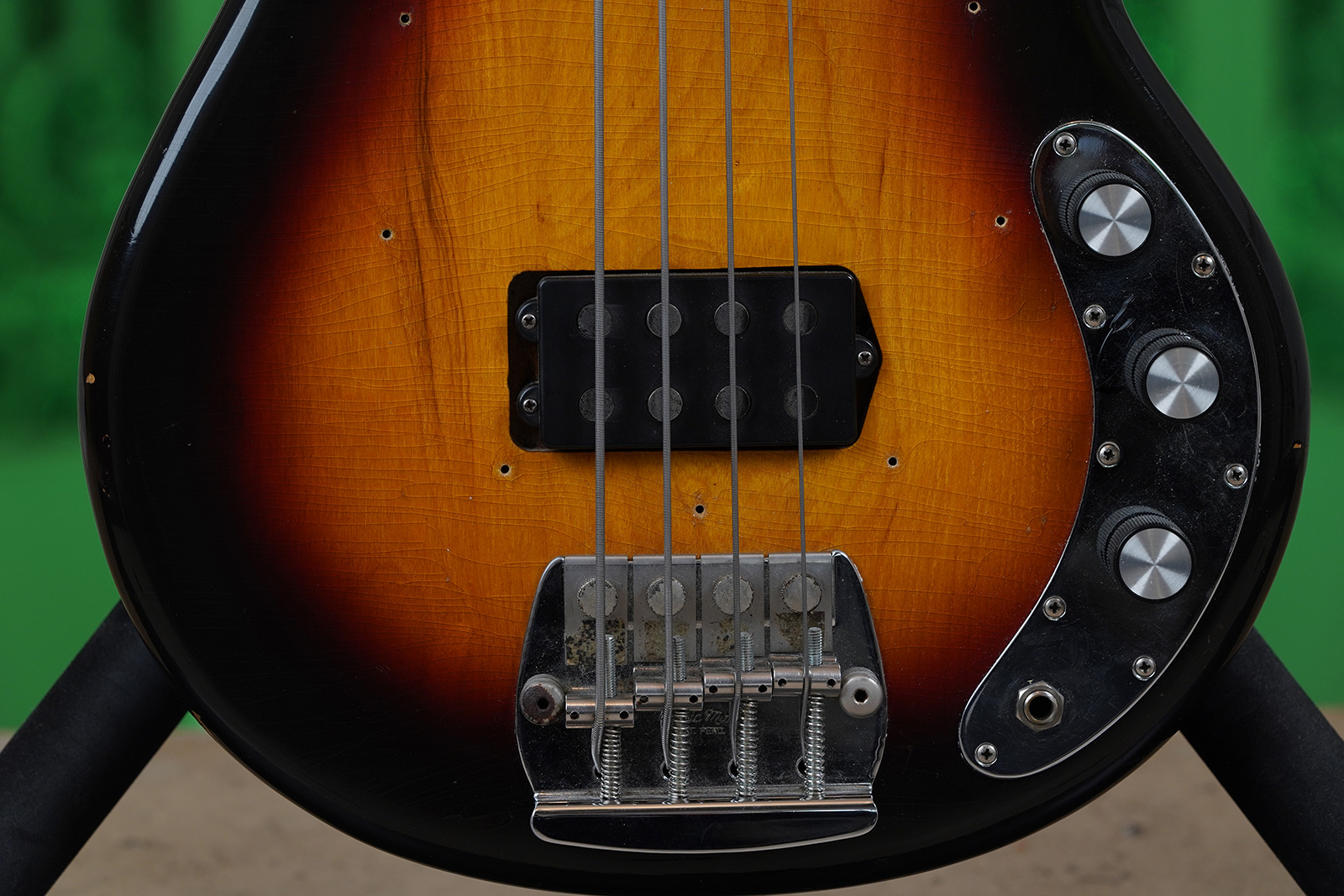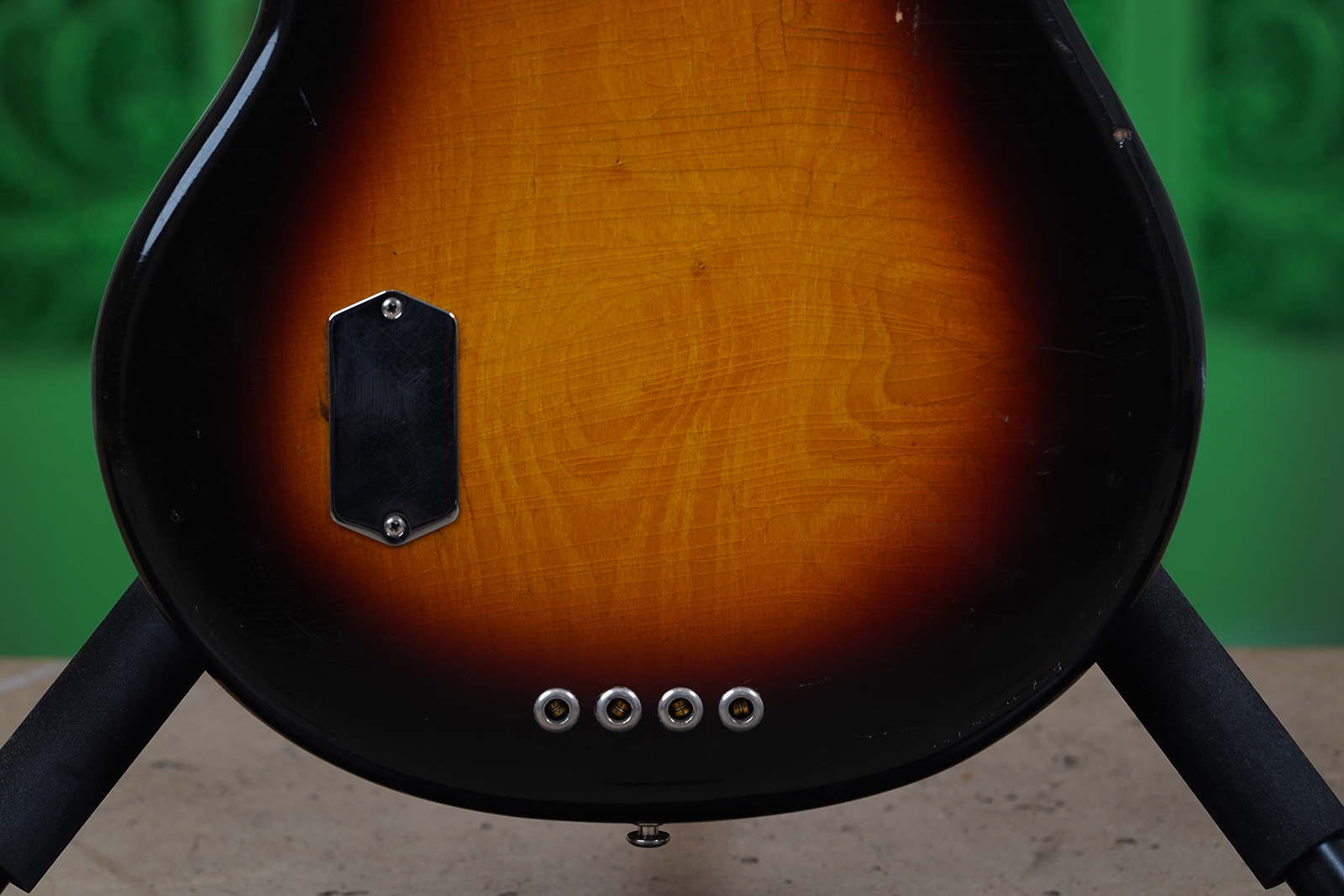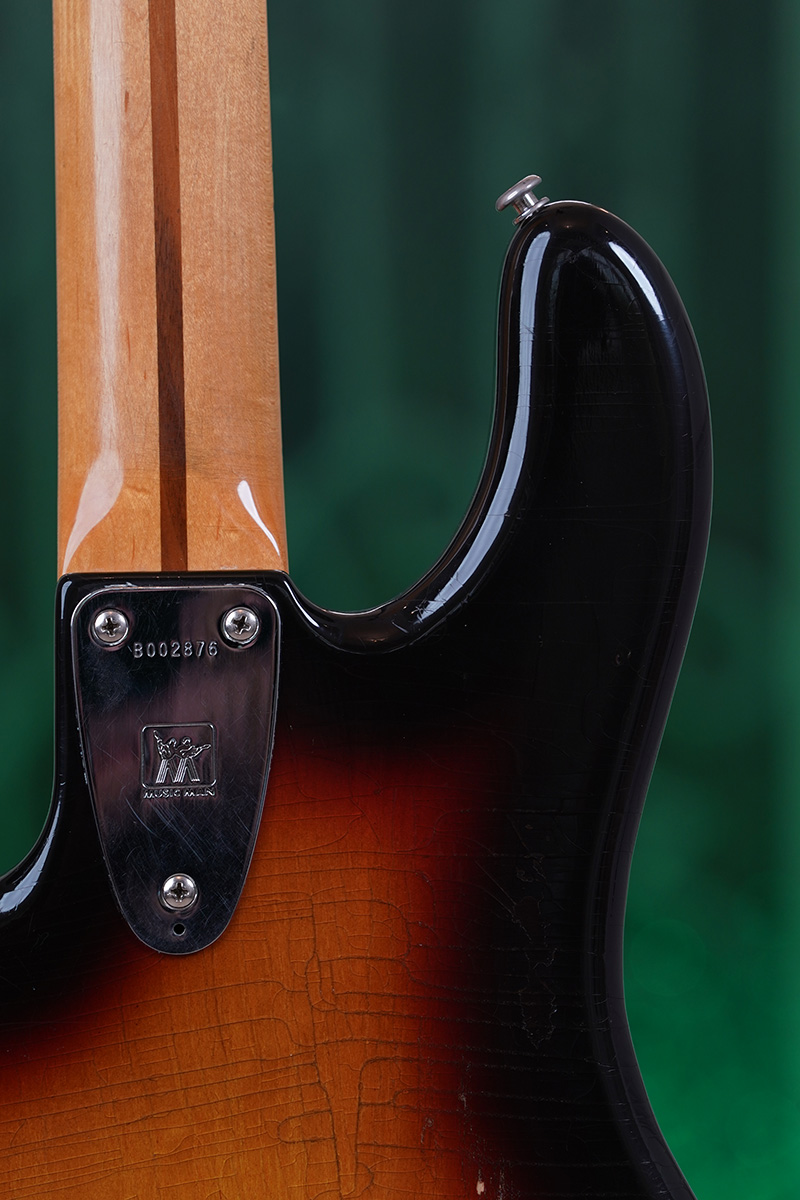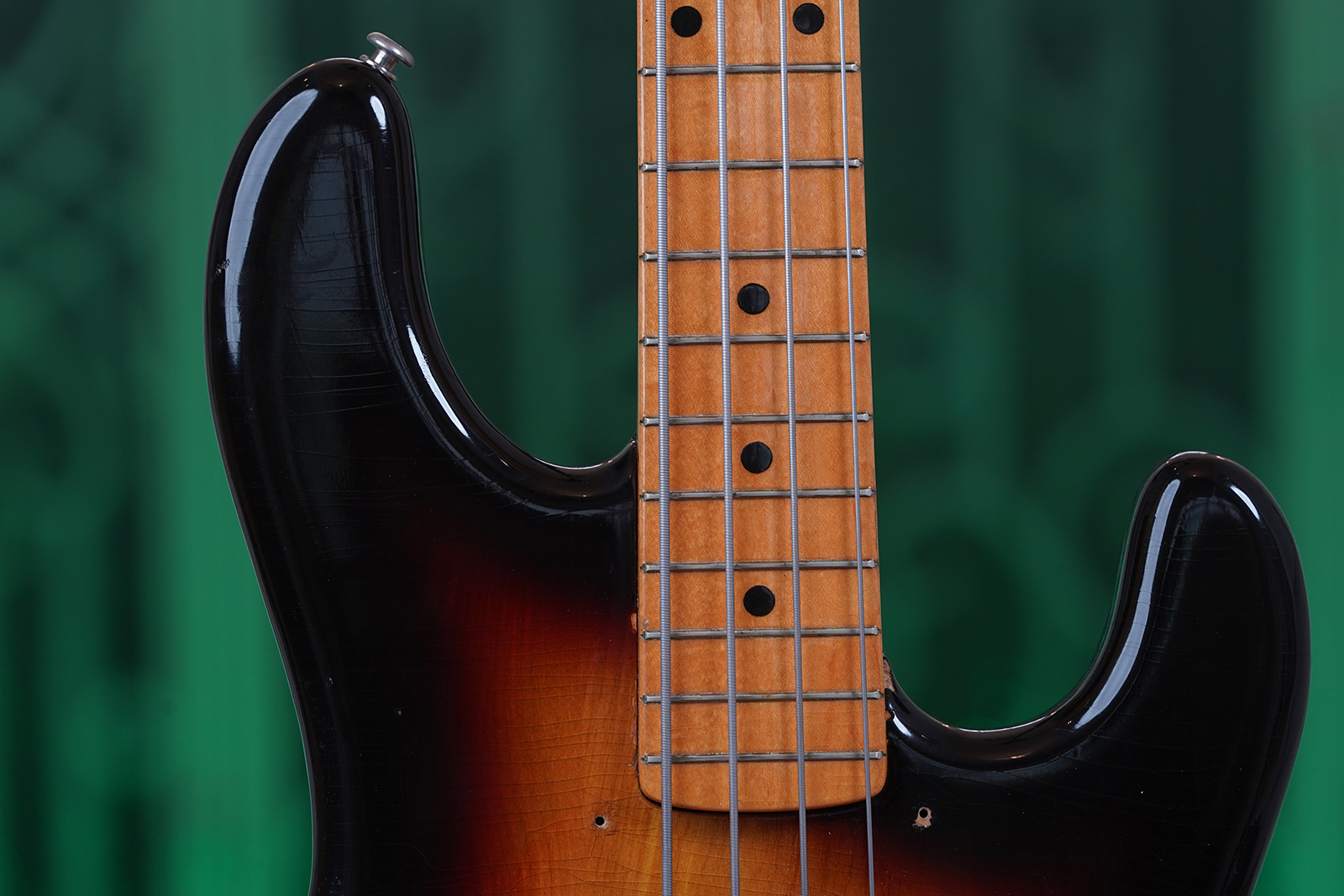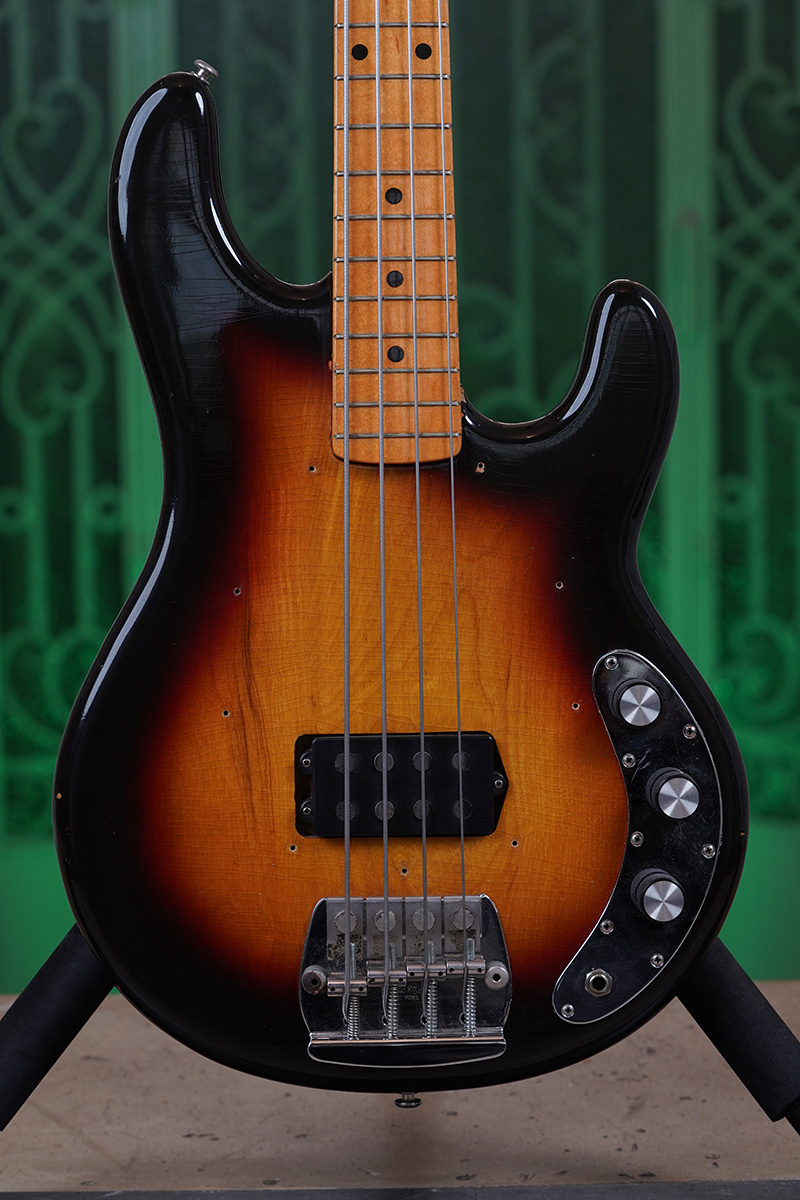Guitars sold
Music Man Stingray 4 Ex Cliff Willliams AC/DC
Sold
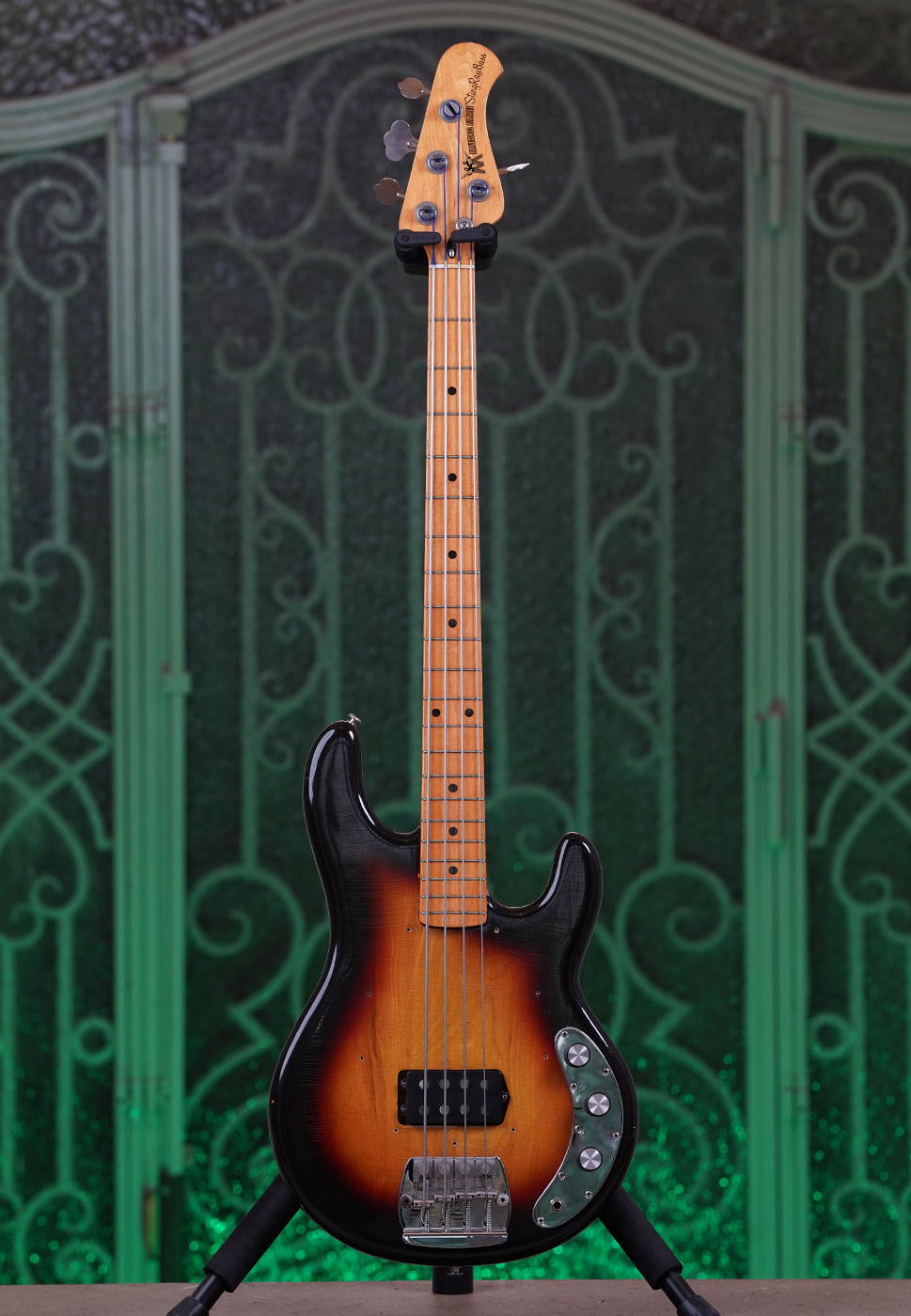
There are instruments that faithfully accompany musicians throughout their career, titles and stadiums. In Cliff Williams' case, it was a StingRay Musicman that hammered out the heavy, incisive sound of AC/DC's greatest hits. Originally dubbed "The #1 Workhouse", the 1979 Stringray has been his favorite bass for over 40 years. 5 copies of the 1979 were in the touring rack every night at the biggest stadiums. This one is the number 3 played around the world... Legendary, did you say legendary?
At the beginning, Cliff Williams played a lot on Precision Bass, but when George Young (the elder brother of Angus and Malcolm) initiated him to a Music Man StingRay at the end of 1978, it is a revelation. Cliff Williams found its neck comfortable, its weight balanced and fell in admiration for its speedy and round sound. He immediately adopted the Music Man StringRay as his primary bass, going so far as to buy five of them to make sure he always had one available. The rich, fat sound and massive tone quickly won the bassist over, and he saw it as the perfect instrument for the gigantic stages and hits AC/DC played. By his own admission, it sounds fantastic and he uses it on everything.
Cliff Williams was always accompanied by five 1979 StingRay basses. They have a poplar body and a maple neck, and the pickguard was removed by Williams. On the electronics side, there is a single humbucker pickup. The contours of the body and the sculpture of the neck shaped by decades of playing bring us back to the golden age of the Australian band. We can guess the repeated hits of the bassist's belt buckle on the body and his incisive attack that has worn the edges of the neck beautifully. Among these five StingRay basses, two are available at Matt's Guitar Shop... What more do you need to know?
Other photos
Cliff Williams
(1949)
Group : AC/DC
Main guitar : Music Man StingRay
An absolute “must-hear” track : Down Payment Blues
AC/DC’s rhythm section is the opposite of a group of flamboyant showmen or guitar heroes: the two frontmen (Angus Young and Brian Johnson) put on the show, while the three at the back are the discreet driving force behind the whole thing. To see him nestled at the rear of the stage, stepping forward only to join in on the choruses, one might think of Cliff Williams—the band’s bassist since 1977—as a simple worker bee. On the contrary, he is a musician of rare intelligence, whose every bass line fully justifies his place in the band and who is not afraid to play the same note for three minutes if that is what the song demands (listen to his work on Thunderstruck). Some accuse him of being simplistic and not bothering to vary his approach, but that is to disregard his discreet syncopations and melodic bass lines that are mixed so low that they are more perceived than heard.
Williams joined the band at the time of the Let There Be Rock tour and so began appearing on AC/DC’s discography from Powerage (1978). He replaced Mark Evans after having been in the bands Home and then Bandit, which were only successful on a small scale. With the arrival of Cliff Williams, the band’s golden age began, and he was responsible for the big, soft sound of the trio of magic albums Powerage, Highway To Hell (1979), and Back In Black (1980). At first, he mainly played a Fender Precision Bass, as the model lends itself well to the piercing rebound of his pick. Over time, he adopted the Music Man StingRay, which became his main instrument. However, he has been seen with many different instruments including a headless Steinberger bass and a Gibson Thunderbird.

